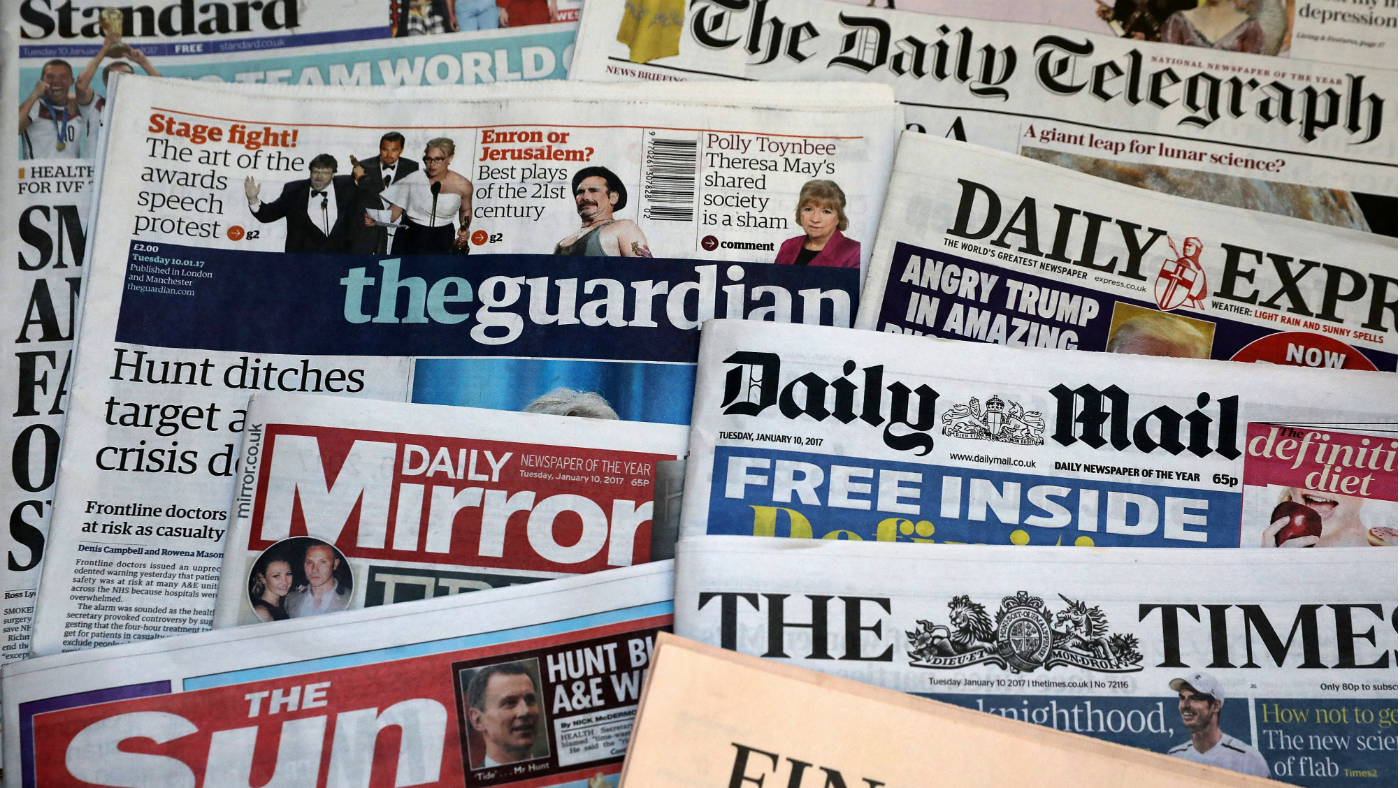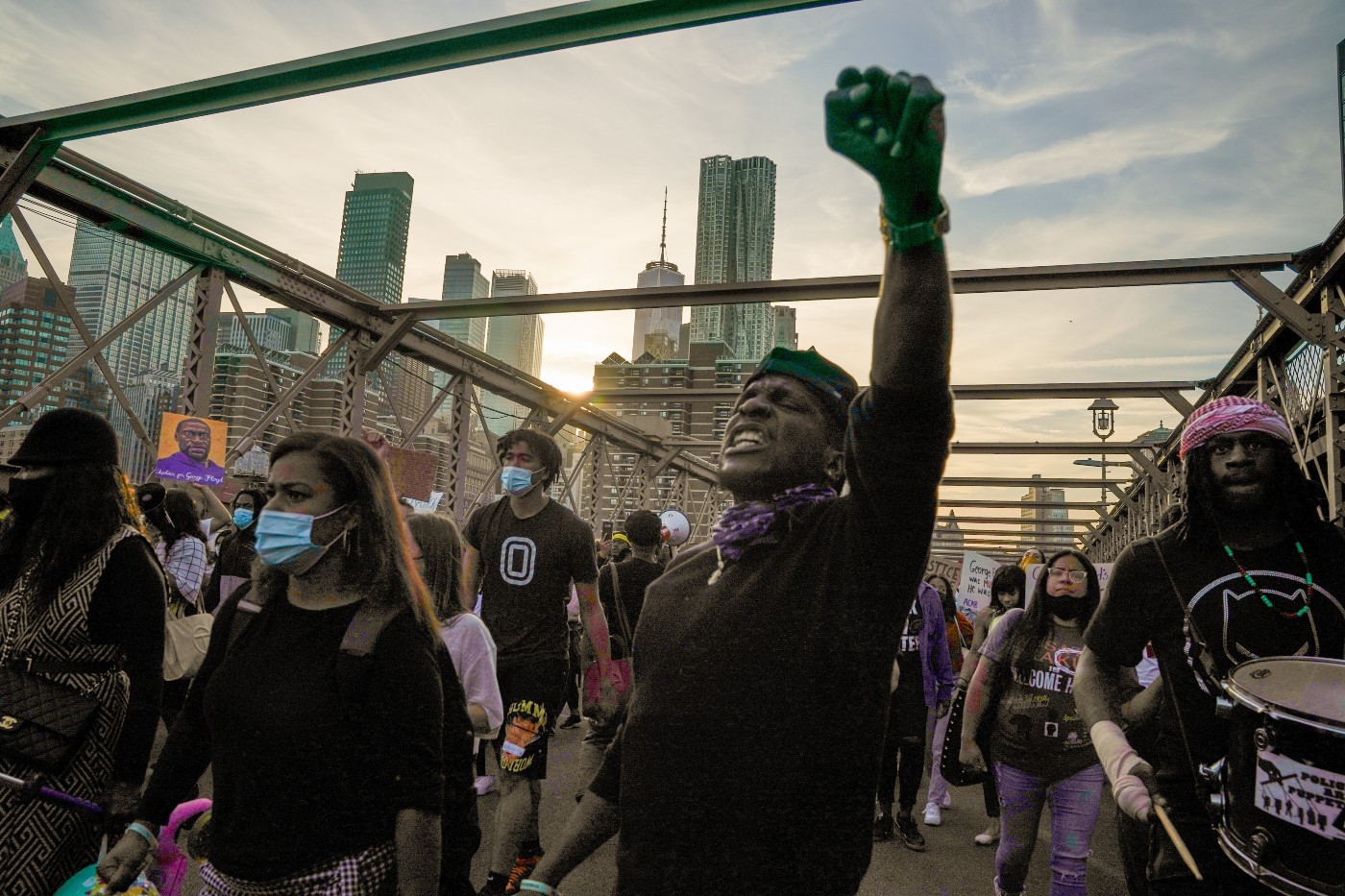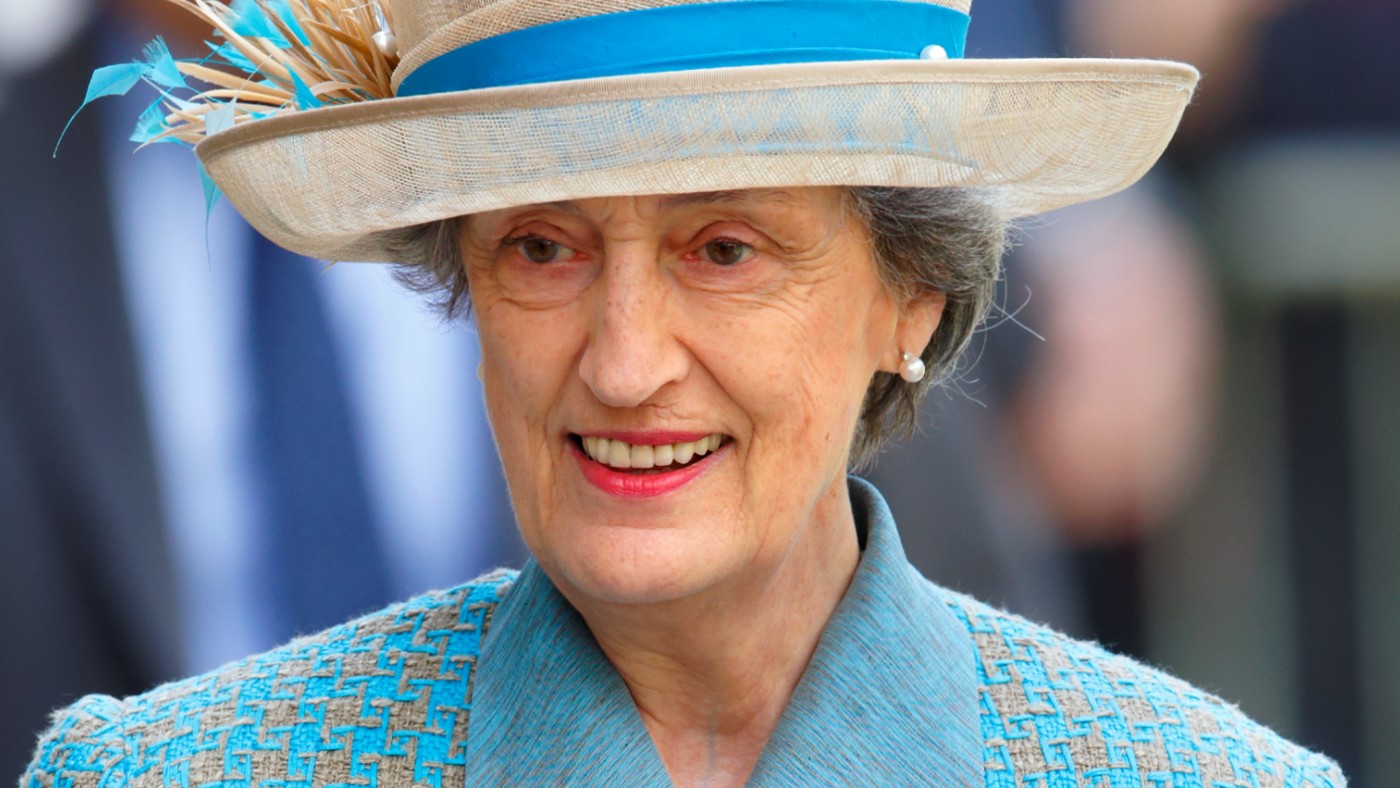Instant Opinion: English football ‘needs to lead’ fight against racism
Your guide to the best columns and commentary on Monday 23 December

A free daily email with the biggest news stories of the day – and the best features from TheWeek.com
You are now subscribed
Your newsletter sign-up was successful
The Week’s daily round-up highlights the best opinion pieces from across the British and international media, with excerpts from each.
1. Barney Ronay in The Guardian
on English football’s racism problem
The Week
Escape your echo chamber. Get the facts behind the news, plus analysis from multiple perspectives.

Sign up for The Week's Free Newsletters
From our morning news briefing to a weekly Good News Newsletter, get the best of The Week delivered directly to your inbox.
From our morning news briefing to a weekly Good News Newsletter, get the best of The Week delivered directly to your inbox.
English football has in the past been willing to lead: it needs to lead here
“The idea of a three-step protocol has always seemed a little absurd. Who says you get two free hits, that only once a crime is repeated three times does it become a crime? Why should any footballer, or indeed any person, be expected to shrug it off twice, to offer a margin for indulgence? English football has in the past been willing to lead. Outrage at the massed actions of the Bulgarian hard right is one thing. But there is a higher bar here. Football’s wealth, status and influence comes solely from players and spectators. It has a duty to protect and care for these people. So why not simply walk off when this happens? Zero tolerance for intolerance: there is no obligation simply to accept the Fifa-Uefa guidance.”
2. Anthony Rowley in the South China Morning Post
on the false promise of a bright EU-less future
A free daily email with the biggest news stories of the day – and the best features from TheWeek.com
Boris Johnson’s post-Brexit Global Britain sounds good – and that’s about it
“Unlike Japan, another former empire, Britain has ceded much of its manufacturing capacity to competitors in Europe, Asia and elsewhere. What is left is basically a service economy with no assured market for those services. Johnson is eager to negotiate new trade deals but what does Britain have to trade? Global Britain of imperial times, and even well after that, had preferential access to the Commonwealth’s rich raw material resources but allowed Japan and then China to take the lead in processing these into high-value-added manufacturing.”
3. Charles M. Blow in The New York Times
on wealth inequality in the holiday season
Remembering the poor on Christmas
“This Christmas, please remember the people like my family: the poor, the people whose lives took a turn, those starting over, the fractured families, those working hard but not quite getting ahead. It can be tempting in a strong economy like this one with such a low unemployment rate to overlook the poor. It can be easy in the consumer craze of Christmas to forget when we are splurging on gifts that there are people without food or medicine.”
4. Catherine Renton in HuffPost
on domestic violence
Domestic violence spikes over Christmas – I know first-hand how festivities can escalate
“The first act of violence happened at Christmas. I’d decided to go to my office Christmas party on a whim and after a few drinks was having the most fun I’d experienced in months. When I got home, I discovered I was locked out. I battered at the door for Connor to let me in, but when he opened the door, I saw his face twisted into a shape I didn’t recognise. I knew immediately that he was going to hurt me. A flash of rage saw me thrown down a flight of stairs, followed by a weeping apology and assurance this would never happen again. But it did.”
5. Azeezah Kanji in Al Jazeera
on the unwavering denialism of Aung San Suu Kyi
Myanmar: Defending genocide at the ICJ
“The Rohingya have endured massacres, apartheid, gang rape, torture, deliberate starvation, forced labour, and the targeted destruction of their homes and villages. And now, after years of international denialism, delay and indifference, they are finally having their day in court. In responding to the accusations against it at the ICJ, Myanmar demonstrated the same callousness, cynicism, and chutzpah that characterises the output of its genocide propaganda machine. It has previously, for example, claimed that the Rohingya set their own homes on fire, that their confinement in camps surrounded by barbed wire is for their own ‘protection’, and that the accounts of widespread military sexual violence were inconceivable because Rohingya women are too ‘dirty’ to rape.”
6. Lauren Bravo in The Daily Telegraph
on festive strife
Why the Christmas season is the ultimate relationship test
“Combining Christmases for the first time is a watershed moment for many couples. It’s no coincidence that December 11 is reportedly the most popular day of the year for a break-up, while the first working day in January is nicknamed ‘Divorce Day’ by family lawyers – but factoring another person’s family into the mix for the first time is a special hurdle in its own right. The heightened emotions; the raised expectations; the awkward sleeping arrangements; the fact that your bloodstream could be 40% Baileys at any given moment.”
7. Clare Foges in The Times
on Britain’s next division
Tory victory was a verdict on culture wars
“On one side we have the woke warriors, on the other the silent majority; self-styled progressives versus those who view themselves as the defenders of common sense. Social media has inflamed the divide. We see enemies everywhere; the silent majority blame snowflakes for every undesirable development in society, the woke see racist gammons behind every injustice.”
8. Helen Thompson in UnHerd
on the last decade
2014: the year western power collapsed
“In two significant respects, the world has changed beyond recognition in the last decade. In the Middle East, American power has crumbled and Russian power is ascendant. Meanwhile, more than 10 years after the 2008 crash, monetary policymakers have come to accept that the global economy must permanently function on extraordinarily cheap credit. These developments, on the surface very different, are not entirely separate — though at the decade’s start, their connection would not have been visible. But in the crucial year of 2014, tumultuous events and dramatic decisions in the Middle East made monetary policy much more difficult worldwide. Each year since has felt the consequences, from which the future cannot recover.”
9. Wolfgang Munchau in the Financial Times
on the collapse of liberalism
Austerity, not the populists, destroyed Europe’s centre ground
“It would be complacent, but fully in line with centrist delusions, to blame the populists, or the Russians, for their decline. But the collapse of the centre is not a conspiracy. It is self-inflicted. In some countries, populists filled the vacuum. But not everywhere. Neither the Greens nor Mr Macron are populists. European liberalism has a long history of self-destruction. We are going through another such cycle. In view of the past, extraordinary decade, only a fool would want to predict what comes next. What remains is a sense of dread.”
-
 El Paso airspace closure tied to FAA-Pentagon standoff
El Paso airspace closure tied to FAA-Pentagon standoffSpeed Read The closure in the Texas border city stemmed from disagreements between the Federal Aviation Administration and Pentagon officials over drone-related tests
-
 Political cartoons for February 12
Political cartoons for February 12Cartoons Thursday's political cartoons include a Pam Bondi performance, Ghislaine Maxwell on tour, and ICE detention facilities
-
 Arcadia: Tom Stoppard’s ‘masterpiece’ makes a ‘triumphant’ return
Arcadia: Tom Stoppard’s ‘masterpiece’ makes a ‘triumphant’ returnThe Week Recommends Carrie Cracknell’s revival at the Old Vic ‘grips like a thriller’
-
 Triangle-headed aliens touched Goldie Hawn
Triangle-headed aliens touched Goldie HawnTall Tales And other stories from the stranger side of life
-
 Boris Johnson shocks UK by resigning from Parliament
Boris Johnson shocks UK by resigning from ParliamentSpeed Read
-
 George Floyd legacy: what has changed in the US three years on
George Floyd legacy: what has changed in the US three years onfeature Police officers are more accountable but has ‘white empathy’ hit a wall?
-
 Bees delay flight for three hours
Bees delay flight for three hoursfeature And other stories from the stranger side of life
-
 What Harry & Meghan reveals about the Duchess of Sussex’s reputation within the royal family
What Harry & Meghan reveals about the Duchess of Sussex’s reputation within the royal familyfeature New Netflix documentary shines a light on the British monarchy’s relationship with the patriarchy and whiteness
-
 ‘Where are you from?’: a question of race and identity
‘Where are you from?’: a question of race and identityTalking Point Lady Hussey racism row could hardly have come at a worse time for the royals
-
 The Week Unwrapped: Synthetic fuel, Myanmar and an energy rebate
The Week Unwrapped: Synthetic fuel, Myanmar and an energy rebatepodcast Could fuels made from CO2 and hydrogen end our dependence on oil? What’s happening in Myanmar? And will energy companies pay us to use less power?
-
 ‘The UK’s malaise will not end with the Prime Minister’s exit’
‘The UK’s malaise will not end with the Prime Minister’s exit’Instant Opinion Your digest of analysis from the British and international press